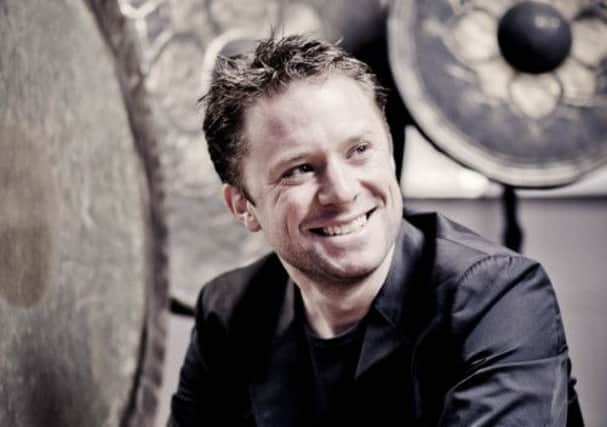Colin Currie on Stockhausen’s ‘lost masterpiece’


That might seem strange, given it was written between 1958 and 1960; that it is remarkably old-fashioned in terms of the electronic vocabulary Stockhausen utilised – this was, after all, the pre-computer and pre-digital age; and that modernity, itself, has moved a long way since that fiercely austere post-war period of exploration that Stockhausen and his followers were such an iconic part of.
Kontakte, itself, started life as a purely electronic work, the composer piecing his four-monochannel creation together in the radiophonic studios of West German Radio in Koln, utilising panning and Doppler effects to enliven the auditory experience. But he was to provide a further electro-acoustic version of it for live performers and tape, which is what Currie and Hodges will team up for as part of Glasgow Life’s current festival, The Piano.
Advertisement
Hide AdCurrie came across Kontakte as an Edinburgh schoolboy. “It’s the first piece of 20th century music I got to know. I remember getting the score out of the Edinburgh Music Library and it immediately captured my imagination,” he recalls.
“The more I play it, the more I feel it is one of music’s lost masterpieces,” he says. “It gave great courage to future composers.”
It is also a period piece, he reckons, not least the sound world of the post-war avant-garde it reminds us of. “It’s a piece that is frozen in time, a classic seminal work.”
By that, Currie is referring more than to the breakthrough it made in bringing together electronic and live acoustic sound. For it was in Kontakte that Stockhausen truly got to grips with total serialism – ie. to bring timbre, pitch, intensity and duration under complete control – and yet somehow managed to create music that extends way beyond dry experimentalism.
In performance, says Currie, it ought to be a truly theatrical experience. “It should have a sense of ritual where the dialogue between the live musicians and tape – that element of contact implicit in the title – becomes a real stand-off between the two. Sometimes it gets testy between us, and we smile a lot. There is mischief in this work, as well as a very passionate side. I think we’ve uncovered that.”
In short, he’s saying it’s nothing to be feared. And any chance to relive such an important milestone in modern musical history is one in a million.
• Colin Currie and Nicolas Hodges perform Kontakte at the Old Fruitmarket, Glasgow, on Wednesday, 27 November, www.glasgowlife.org.uk